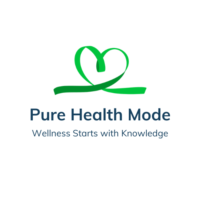Why a Strong Heart Matters
Your heart works tirelessly every second of your life, pumping blood and delivering oxygen to every cell. Understanding How Can I Make My Heart Strong is the foundation of good health and longevity. When your heart is strong, you have more energy, better circulation, and a reduced risk of serious conditions like heart disease and stroke. Taking proactive steps to care for your heart can help you feel your best today while protecting your health for the future.
The Importance of Heart Health
Heart disease remains the leading cause of death worldwide. However, many of the risk factors—like high blood pressure, poor diet, lack of exercise, and chronic stress—are within your control. If you’re asking yourself how can I make my heart strong, remember that it’s not about extreme measures. Small, consistent lifestyle changes can have a significant impact over time. Understanding what affects your heart health is the first step toward building habits that support it.
Best Exercises to Strengthen Your Heart
Best Exercises for a Healthy Heart
Regular physical activity is one of the most effective ways to strengthen your heart. Aerobic exercises, also known as cardio, are especially important. Activities like brisk walking, jogging, swimming, cycling, and dancing get your heart rate up and improve circulation. These exercises help lower blood pressure, reduce cholesterol levels, and support weight management.
How Cardio Workouts Strengthen Your Heart
When you engage in cardio workouts, your heart muscle works harder to pump blood. Over time, this makes it more efficient, helping it pump more blood with less effort. This not only lowers your resting heart rate but also improves the way your body uses oxygen. If you’re wondering how can I make my heart strong, remember that even simple activities like brisk walking for 30 minutes a day can make a noticeable difference in how strong and healthy your heart feels.
Simple Daily Activities to Improve Heart Health
You don’t have to be an athlete to build a stronger heart. Daily habits matter just as much as structured exercise. Take the stairs instead of the elevator. Park farther from entrances and walk more. Do light stretching or yoga in the morning. Even short breaks to stand up and move during the day can help counteract the negative effects of prolonged sitting. If you’re asking how I can make my heart strong, remember that small actions, repeated consistently, add up over time to build lasting heart health.
How Much Exercise Do You Need?
Experts recommend at least 150 minutes of moderate-intensity exercise per week for most adults. This could mean 30 minutes a day, five days a week. If you prefer more vigorous activity like running, aim for 75 minutes weekly. The key is consistency—finding activities you enjoy makes it easier to stick to your routine.
Eating for Heart Health
Heart-Healthy Foods You Should Eat
Nutrition plays a vital role in supporting your cardiovascular system. Focus on a diet rich in fruits, vegetables, whole grains, lean proteins, and healthy fats. Berries, leafy greens, nuts, beans, and fatty fish like salmon provide essential nutrients and antioxidants that protect your heart. Adding more fiber can also help lower cholesterol levels and keep your arteries clear.
What to Avoid: Foods That Can Weaken Your Heart
While adding healthy foods is important, it’s equally essential to limit what can harm your heart. Processed foods high in trans fats, added sugars, and excess sodium can contribute to inflammation and clogged arteries. Reducing sugary drinks, packaged snacks, and fried foods will go a long way toward supporting your heart health. If you’re wondering how I can make my heart strong through diet, start by reading food labels and cooking more meals at home to make better, heart-friendly choices.
The Role of Omega-3s and Healthy Fats
Not all fats are bad for you. Omega-3 fatty acids, found in fish, walnuts, and flaxseeds, are known to lower triglycerides and reduce inflammation in the body. Replacing saturated fats from red meat and butter with healthier fats like olive oil and avocado can improve cholesterol levels and benefit your heart over time.
Meal Planning for Cardiovascular Health
Planning your meals in advance helps you stay on track with healthy eating. Start by filling half your plate with vegetables and fruits, then add a source of lean protein and a serving of whole grains. Keep healthy snacks like nuts, yogurt, or fresh fruit on hand to avoid reaching for processed options when hunger strikes. If you’re thinking about how to make my heart strong with food choices, meal planning is one of the most effective ways to support long-term heart health. If you’re thinking about how to make my heart strong with food choices, meal planning is one of the most effective ways to support long-term heart health.
Lifestyle Habits That Protect Your Heart
Stress Management for a Stronger Heart
Chronic stress can take a toll on your cardiovascular system by raising blood pressure and increasing inflammation. Managing stress is essential for a healthy heart. Techniques like deep breathing exercises, meditation, and spending time in nature can calm your mind. If you’re asking how can I make my heart strong, remember that even dedicating a few minutes daily to relaxation can help reduce the harmful effects of stress and support better heart health.
The Impact of Sleep on Heart Health
Quality sleep gives your heart time to rest and recover. Adults should aim for 7–9 hours of sleep each night. Poor sleep is linked to higher blood pressure, weight gain, and an increased risk of heart disease. If you’re wondering how to make my heart strong, start by improving your sleep habits—create a calming bedtime routine, limit screen time before bed, and keep your bedroom cool and dark to support a healthier heart.
Avoiding Smoking and Alcohol
Smoking damages blood vessels, reduces oxygen in the blood, and significantly increases the risk of heart disease. Quitting smoking is one of the most powerful steps you can take for your heart. Likewise, avoid alcohol intake to no more than one drink per day for women and two for men, as drinking can raise blood pressure and harm the heart muscle.
How to Maintain a Healthy Weight
Carrying excess weight puts strain on your heart and raises the risk of high blood pressure and diabetes. Focus on gradual, sustainable changes rather than quick fixes. Combining regular exercise with balanced nutrition is the most effective approach. Even a modest weight loss of 5–10% of your body weight can lead to measurable improvements in heart health. If you are overweight or want to lose some weight in a healthy way, a well-balanced meal plan can help manage your calories while strengthening your heart. For a detailed eating plan, check out our 1500 Calorie Meal Plan: A Comprehensive Guide to Healthy Eating to create balanced meals that boost heart strength and overall wellness.
Recognizing and Preventing Heart Disease
Warning Signs of Heart Problems
Understanding the warning signs of heart issues can save lives. Symptoms such as chest pain, shortness of breath, dizziness, or discomfort in the neck and jaw should never be ignored. If you experience these symptoms, seek medical attention immediately. Early intervention can prevent serious complications.
When to See a Doctor About Your Heart
Regular check-ups help detect risk factors before they become problems. If you have a family history of heart disease, high cholesterol, high blood pressure, or diabetes, discuss your heart health with your doctor. If you’ve ever asked yourself how can I make my heart strong, regular medical check-ups are one of the best answers. Together, you can create a personalized plan to keep your heart strong and healthy.
How Regular Check-Ups Help Prevent Heart Disease
Routine screenings, such as cholesterol tests and blood pressure checks, play a critical role in early detection. Your healthcare provider can monitor your progress and recommend lifestyle changes or treatments if needed. If you’re wondering how can I make my heart strong, regular screenings are a key step in maintaining a healthy heart.
Conclusion: Key Takeaways for a Strong and Healthy Heart
Building a stronger heart doesn’t require drastic changes. If you’ve ever wondered how I can make my heart strong, the answer lies in simple, consistent habits—like regular exercise, balanced eating, stress management, and routine check-ups—that can make a lasting difference. By taking action today, you’re investing in a healthier, more vibrant future.

